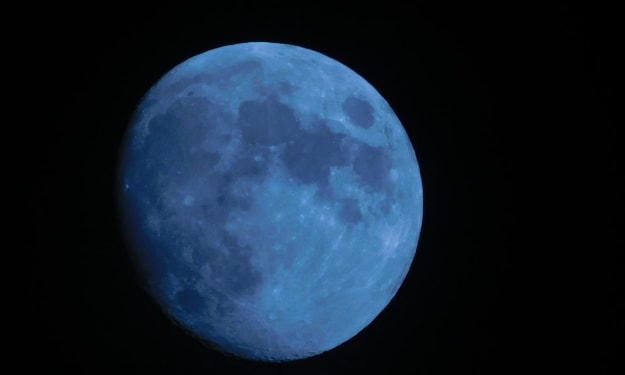When Napoleon Marched On Moscow
They arrived in the summer of 1812, but by winter they were running for their lives

Many North Americans might hear ‘war’ and ‘1812’ together and instantly think of their own war with the British, which ran until 1815 and ended in victory for the US.
However, across the Atlantic a different sort of war also took place, and was one that the British were perhaps more interested in, with far reaching affects over the entire European continent and globe.
This was a war between Napoleon Bonaparte’s French Empire and Tsar Alexander I’s Russian Empire — a war involving a standing army larger than any the world had ever seen at that point, with nationals from 13 different countries taking part, some of which had been hoovered up by Napoleon’s growing Empire, and others of which had been sent along to keep the Little General happy.
Britain watched on eagerly. For them, Napoleon stood against their ideals of monarchy and democracy. He challenged the well established norms of war, trade and politics, and his existence and success sent a bad message to the remaining monarchs across the continent they called allies: a civilian calling himself Emperor, after a king has been beheaded, would never be acceptable.
Alexander I, meanwhile, stood for autocracy, hereditary rule, imperial expansionism in the ‘right way’, and a belief that he was chosen by God to lead the Russian Empire against Napoleon.
After first meeting Napoleon, Alexander was in awe of the man. But that relationship would soon sour, and the two would become entangled in a decade of disagreements and war, with Alexander opposing Napoleon whenever he was able, and the Corsican giving him regular beatings on the battlefield to keep him onside.
Napoleon’s real enemy was the British, and as his latest treaty with Russia collapsed in 1810, with Alexander allowing British trade at his ports despite Napoleon banning it across the continent, he decided drastic action must be taken to get the Tsar onside for good.
The Grande Armee
Angered by the broken promises, Napoleon decided it was time to flex his military muscles once again and remind Russia of their place. His politics, amid a continent of unhappy nations wanting nothing more than to send him packing, had consisted of this very tactic: getting his own way by forcing the matter on the battlefield.
Napoleon had no desire to take Russia for the French Empire. This was a war to force partnership, force a former ally to once more came back in to the fold and join forces against the ultimate enemy (the British), not expansionism out East.
The army Napoleon formed consisted of some 685,000 men (450,000 being the usual quoted number of frontline troops). Two thirds were French, but as the army passed over Europe en route to the Russian border, it sucked up troops from Poland (the Polish question being a big problem between the French and Russians), Austria, Italy, Bavaria, Saxony, Prussia, Westphalia, Switzerland, Denmark, Norway, Portugal, Croatia and Ireland.
The peoples of this army, it goes without saying, had differing loyalties. Some were happy to fight for, and possibly die for, the banner of the French Empire. Others were held forcibly under it and fought as they were ordered to do so, while still holding their own lingering hopes of freedom (Poland for example). Others again simply held a common enemy in the Russians and (by proxy) the British, and joined the cause to fight against them.
Regardless of this, the army crossed the Niemen River on 24th June 1812, hoping for a brief campaign on Russian soil to force the issue, and be home before summer ended.
The army was dressed in flashy, warm weather uniform, showing Napoleon’s hopes of a swift, decisive victory.
It was not his intention to still be in the country as the snow started to fall.
The March to Moscow
To Napoleon’s frustrations, as he sought engagement with the standing Russian armies (under the overall command of General Kutusov as of August 1812), the Russians repeatedly chose to retreat further and further in to their homeland, opting for the tactic of smaller skirmishes against an army they knew was superior.
But a battle could not be avoided forever. The famous Battle of Borodino in early September 1812 consisted of some 190,000 troops on the French side, and 160,000 on the Russian side, although figures do vary from source to source.
Many historians consider the outcome of this battle, in which almost 100,000 people were either killed or captured across both sides, a pyrrhic victory for the French, but in truth, neither side won. Both suffered horrific losses that would cripple them for the rest of the campaign, leading to some calling it a draw.
However, it was the Russian’s who retreated, heading south of Moscow, with Kutusov willing to concede the city to avoid capitulation while extra troops were rallied.
Napoleon had not found the decisive victory he wanted, writing in his journal:
“The most terrible of all my battles was the one before Moscow. The French showed themselves to be worthy of victory, but the Russians showed themselves worthy of being invincible.”
But strolling in to Moscow a week later, on 14th September 1812, his mood was improved. He never imagined he would ever conquer the ancient Russian city, and felt like his hero Julius Caesar. Sitting in the Kremlin, he had messages sent to the Tsar and Kutusov to open peace negotiations and bring the war to a close.
He waited for five weeks, with Kutusov promising to relay the peace proposals to the Tsar, but Napoleon received no answers back from any of his messages.
Meanwhile, in the fortified Moscow, most of the wealthy locals had fled, and the Grande Armée had grown restless and started ransacking and looting. Upon the arrival of the French on the 14th, Count Rostopchin (Moscow Governor) ordered the burning of Moscow, in a fire that swept over most of the city and could be seen from over 100 miles away.
Napoleon was appalled by the fire, but this was a surprising strategy the Russian’s had used throughout their retreat from the French: a scorched Earth tactic on their own land, unheard of in history, that left the French with little food, fodder, or anything else in their small victories along the way.
Up to 400 arsonists were shot, but the fires weren’t extinguished fully until the winter weather began to descend. Although Napoleon had resolved to winter in Moscow and continue to the Russian capital Saint Petersburg in the spring, the Russian Cossacks outside the city had cut off their supply lines, ongoing battles were chipping away at their numbers, and resources in Moscow were slim.
Napoleon’s great victory was suddenly turning in to a disaster.
The retreat back home
Napoleon realised his request for negotiations would never be answered, and the longer they stayed, the more vulnerable they became. After over a month in Moscow, he ordered a retreat.
Snows had begun falling, and what remained of the Grande Armée was exhausted, ill equipped for the cold, and being constantly picked off with guerilla warfare tactics by the marauding Cossacks.
Alexander went from being filled with despair having lost Moscow and hundreds of thousands of men, to suddenly reclaiming the city and having a real opportunity to get rid of his old enemy once and for all.
By the time the Grande Armée reached the Berezina River at the end of November 2012 (in modern day Belarus, then part of the Russian Empire, and about halfway between Moscow and Warsaw), they had been walking knee high through snow for weeks, and only around 50,000 of its frontline troops remained. The Battle of Berezina saw as many 30,000 of those troops perish, as the rest hastily built bridges to flee across the river, then burned them down to escape the invigorated Russians.
But the horrors of the retreat did not stop on the battlefield. Dressed in light summer clothing, thousands froze to death, thousands more returned home missing digits or noses to frostbite, psychologically scarred forever. With no supplies, and no where to gather them in the snow, one lieutenant remarked:
no fallen horse or cattle remained uneaten, no dog, no cat, no carrion, nor indeed, the corpses of those who died of cold and hunger.
Sentiment back in France, by now, was firmly against Napoleon. The people that previously worshipped him were now tired by the constant warring and loss of life. Concerned he might be overthrown, Napoleon left his army behind on 5th December 1812 and hurried home, as temperatures plummeted to lows of -34 ℃.
Of the 450,000 that crossed the Niemen River on the way in to Russia six months earlier, only around 4,000 remained as they crossed it on their way out. Meanwhile, as many as 250,000 Russian soldiers died, with probably hundreds of thousands more civilians on top of that.
The Russian’s call the campaign the Patriotic War of 1812, and celebrate it as a victory for the indelible Russian spirit. In the end, this was a war won as much by its civilians than its army, as regular citizens stood with soldiers to harass and chase the Grande Armée from its borders.
Aftermath
In the summer of 1813, after both sides had regrouped, and the warring season had returned, a coalition army was formed against Napoleon, wanting to strike definitively now he was weakened.
He never recovered from the political setback of the 1812 campaign, and by spring 1814, after a string of defeats, Tsar Alexander himself strolled in to Paris to assist in the terms of his surrender, gaining some form of revenge for what happened in Moscow.
Napoleon was ousted and exiled, with the British being most adamant about him no longer remaining in power.
After a brief comeback from his first exile on Elba, which ended for good at the Battle of Waterloo, Napoleon was exiled to the lonely island of Saint Helena, where he died in 1821, effectively a prisoner of the British. Meanwhile, Alexander continued to reign Russia until he died in 1825 of typhus, and is remembered today as one of Russia’s greatest Tsars.
The War of 1812 leaves behind a strong mark on popular culture, glorified in Leo Tolstoy’s masterpiece War and Peace, and celebrated in the 1812 Overture by Pyotr Ilyich Tchaikovsky.
The mistakes made by Napoleon during this war would be repeated during Nazi Germany’s own attempts to invade Russia, beaten once more by the determination of its people and its freezing winter conditions.
* * *
Sources
- Greenspan, Jesse (2012, updated 2020). Why Napoleon’s Invasion of Russia Was the Beginning of the End. History. Available at: https://www.history.com/news/napoleons-disastrous-invasion-of-russia
- Roberts, Andrew (2014). Napoleon the Great, Penguin Random House UK
- Zamoyski, Adam (2004). Moscow 1812: Napoleon’s Fatal March On Moscow, Harper Collins
About the Creator
R P Gibson
British writer of history, humour and occasional other stuff. I'll never use a semi-colon and you can't make me. More here - https://linktr.ee/rpgibson






Comments
There are no comments for this story
Be the first to respond and start the conversation.